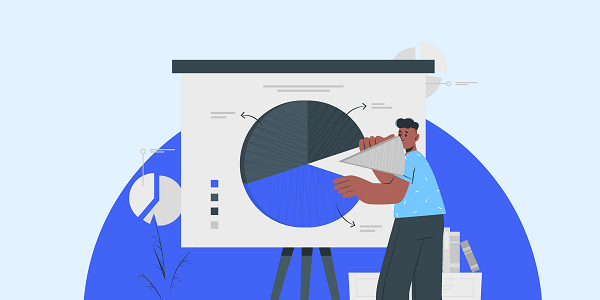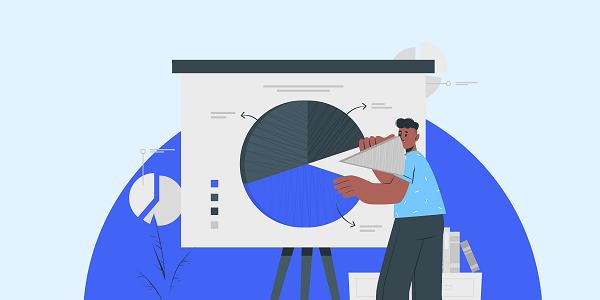Residential Proxies
Allowlisted 200M+ IPs from real ISP. Managed/obtained proxies via dashboard.

Proxies
Residential Proxies
Allowlisted 200M+ IPs from real ISP. Managed/obtained proxies via dashboard.
Residential (Socks5) Proxies
Over 200 million real IPs in 190+ locations,
Unlimited Residential Proxies
Use stable, fast, and furious 700K+ datacenter IPs worldwide.
Static Residential proxies
Long-lasting dedicated proxy, non-rotating residential proxy
Dedicated Datacenter Proxies
Use stable, fast, and furious 700K+ datacenter IPs worldwide.

Web Unblocker
View content as a real user with the help of ABC proxy's dynamic fingerprinting technology.
Proxies
API
Proxy list is generated through an API link and applied to compatible programs after whitelist IP authorization
User+Pass Auth
Create credential freely and use rotating proxies on any device or software without allowlisting IP
Proxy Manager
Manage all proxies using APM interface

Proxies
Residential Proxies
Allowlisted 200M+ IPs from real ISP. Managed/obtained proxies via dashboard.
Starts from
$0.77/ GB
Residential (Socks5) Proxies
Over 200 million real IPs in 190+ locations,
Starts from
$0.045/ IP
Unlimited Residential Proxies
Use stable, fast, and furious 700K+ datacenter IPs worldwide.
Starts from
$79/ Day
Rotating ISP Proxies
ABCProxy's Rotating ISP Proxies guarantee long session time.
Starts from
$0.77/ GB
Static Residential proxies
Long-lasting dedicated proxy, non-rotating residential proxy
Starts from
$5/MONTH
Dedicated Datacenter Proxies
Use stable, fast, and furious 700K+ datacenter IPs worldwide.
Starts from
$4.5/MONTH
Knowledge Base
English
繁體中文
Русский
Indonesia
Português
Español
بالعربية


Analyze the technical characteristics and applicable scenarios of mainstream data collection libraries, explore how proxy IP can optimize the collection process, and interpret abcproxy's technical adaptation solutions in multiple scenarios.
What are the core functions of the data collection library?
Scraping Library is a programming toolkit used by developers to automatically crawl web data, such as Python's Scrapy, BeautifulSoup, or JavaScript's Puppeteer. Its core functions include parsing HTML structure, processing dynamically loaded content, simulating user interactions (such as clicks, scrolling), and managing request queues. As platforms such as Instagram are increasingly strict with the detection of automated scripts, data collection libraries need to be combined with anti-crawling strategies (such as request header camouflage and IP rotation) to run stably.
Taking the Scrapy framework as an example, its asynchronous processing capability can improve collection efficiency, but high-frequency access from a single IP will still trigger a platform ban. At this time, proxy IP becomes a key infrastructure to maintain collection continuity. The multi-type proxy IP service provided by abcproxy can provide underlying support for data collection libraries with different characteristics.
How does the proxy IP work with the data collection library?
The stability of the data collection library is highly dependent on the diversity and anonymity of IP resources. For example, when using the Requests library for single-threaded collection, the residential proxy IP can be automatically switched through the middleware plug-in to avoid the same IP triggering frequency limit; and when using the Selenium library to simulate browser behavior, the static ISP proxy can maintain a "long-term login state", which is suitable for scenarios that require cookie persistence.
In terms of technical integration, abcproxy's proxy service supports SDK access for mainstream development languages. Developers can dynamically call the residential proxy IP pool through the API, or configure a dedicated download middleware for the Scrapy framework to achieve on-demand IP rotation. For enterprises that need distributed crawlers, its unlimited residential proxy product can support thousands of nodes for parallel collection to ensure data throughput.
How does abcproxy adapt to different data collection libraries?
The design of abcproxy's proxy IP service fully considers the differences in developers' technology stacks:
Protocol compatibility: supports HTTP/HTTPS/Socks5 protocols, covering all scenarios from basic crawlers to complex browser simulations.
Dynamic resource allocation: For asynchronous crawlers (such as aiohttp), a low-latency proxy IP switching interface is provided to reduce thread blocking.
Geographic location customization: When combined with frameworks such as Scrapy, it can call residential IP addresses in specific countries/cities to accurately collect regionalized content.
For example, when using Puppeteer to collect Instagram Stories, abcproxy's static ISP proxy can keep the IP address unchanged for several hours, avoiding frequent login verification; and when collecting public posts in batches, the high bandwidth characteristics of the data center proxy can speed up the download of media files.
What are the typical application scenarios of data acquisition libraries?
Content aggregation: Capture price data from e-commerce platforms and dynamically adjust marketing strategies.
Public opinion analysis: real-time monitoring of social media keywords and generation of sentiment heat maps.
Competitive intelligence: Track the frequency of competitor product page revisions and promotional activity updates.
SEO optimization: Batch scan web page Meta tags and analyze search engine ranking factors.
In these scenarios, the data collection library is responsible for the extraction and cleaning of structured data, while the proxy IP plays the underlying support role of circumventing bans and improving anonymity. The combination of the two can build a complete link from data acquisition to business insights.
How to evaluate the performance indicators of data collection libraries?
The following dimensions should be considered when selecting a data collection library:
Anti-crawling and bypassing capabilities: whether JavaScript rendering and verification code recognition plug-ins are supported.
Extensibility: Can the proxy IP management and request retry mechanism be extended through middleware?
Resource consumption: memory usage, number of concurrent threads and matching degree of proxy IP service.
For example, although the Playwright library is cross-browser compatible, its high memory consumption requires it to be used with abcproxy's data center proxy to reduce the cost of a single task; and the lightweight BeautifulSoup is more suitable for combination with the low-latency Socks5 proxy to quickly capture static pages.
Conclusion
As a professional proxy IP service provider, abcproxy provides a variety of high-quality proxy IP products, including residential proxy, data center proxy, static ISP proxy, Socks5 proxy, unlimited residential proxy, suitable for a variety of application scenarios. If you are looking for a reliable proxy IP service, welcome to visit the abcproxy official website for more details.
Featured Posts
Popular Products
Residential Proxies
Allowlisted 200M+ IPs from real ISP. Managed/obtained proxies via dashboard.
Residential (Socks5) Proxies
Over 200 million real IPs in 190+ locations,
Unlimited Residential Proxies
Use stable, fast, and furious 700K+ datacenter IPs worldwide.
Rotating ISP Proxies
ABCProxy's Rotating ISP Proxies guarantee long session time.
Residential (Socks5) Proxies
Long-lasting dedicated proxy, non-rotating residential proxy
Dedicated Datacenter Proxies
Use stable, fast, and furious 700K+ datacenter IPs worldwide.
Web Unblocker
View content as a real user with the help of ABC proxy's dynamic fingerprinting technology.
Related articles

How does the ChatGPT RAG example improve information processing capabilities
Analyze the actual application scenarios of ChatGPT combined with Retrieval Augmented Generation (RAG) technology, explore its value in knowledge integration and data acquisition, and understand how abcproxy provides underlying support for the RAG system.

How does Best Socks5 Proxy ensure anonymous network needs
This article explores the core value of Socks5 proxy in anonymous networks and analyzes how abcproxy high anonymous proxy meets diverse security needs.

How to remove website access restrictions
This article analyzes the technical principles and mainstream solutions of website access restrictions, and explores the core role of proxy IP in bypassing regional blocking and anti-crawling mechanisms. abcproxy provides multiple types of proxy IP services to help you break through network restrictions efficiently.